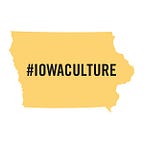Meaty History in ‘Capitalist Pigs’
The State Historical Society of Iowa’s new Dorothy Schwieder Excellence in Research Award is the society’s top award for research and writing that makes a significant contribution to the body of knowledge of Iowa history. It also honors the legacy of its namesake, who died in 2014 after a distinguished career as an American historian, biographer and professor.
Joe Anderson recently won the inaugural Schwieder Award for his book “Capitalist Pigs” (West Virginia Press, 285 pages), which William Friedricks reviewed below.
I first met author Joe Anderson 25 years ago when he was the director of interpretation at Living History Farms and was immediately stuck by his knack for conveying history in an engaging manner. It was here at the Farms and other outdoor museums where he worked, Anderson tells us in his latest book, “Capitalist Pigs,” that he developed “a personal and professional interest in swine.” Since then, he has gone on to become one of the leading figures in the fields of American agricultural and rural history.
With crisp prose, descriptive charts, maps and handsome illustrations, this thoughtful volume examines the significance of pigs in America, from the Columbian Exchange and European arrival to the present. Anderson argues that pigs played a special part in our history, revealing the changing aspects of economic power and conflict throughout the development of the country.
Organized topically rather than chronologically, the book addresses the husbandry of pigs as well as issues of consumption, production, technology, scientific advancement and government involvement in the industry.
Early European settlers and then Americans allowed their hogs to roam freely, making them “valuable allies” in displacing Native American populations by destroying or rooting out many of their food sources. Conflict often ensured, and native people were pushed west.
Others, meanwhile, saw opportunities and made millions on pork. First in Cincinnati — dubbed “Porkopolis” by the mid-19th century — and later in Chicago, entrepreneurs created economies of scale, combined the then-distinct operations of slaughtering and packing pork into consolidated, largescale enterprises where the introduction of conveyor belts mechanized much of the process. These “disassembly lines” predated Henry Ford’s assembly line by more than half a century.
At the same time railroads were creating a national mass market, the price of packed pork fell, and it became the meat of America’s working classes, as well as the one that plantation owners provided their slaves.
Although Anderson gives more weight to the 19th century, the book is comprehensive. It addresses the role pigs played as waste removers and recyclers, hog cholera and the government’s intervention to control it, the rebranding of pork as “the other white meat,” the industrialization of the pork business and the impacts of large confinement operations, and the importance of the export market.
Iowans should be especially interested in this book, given the significance the state has played in the development of the hog business. And, of course, pigs remain critical to our economy as Iowa is the leading producer of pork in the nation.
“Capitalist Pigs” offers a textured, complex portrait of pigs and pig products throughout the history of the United States. It is sure to provide new and valuable insights for all Iowa readers, whether you are rural or urban, have experience raising hogs, or just enjoy ham, bacon, or sausage.
— William Friedricks is a professor of history at at Simpson College, where he directs the Iowa History Center, and serves on the board of the State Historical Society of Iowa.
